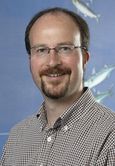Project
Practical recommendations for regional sampling plans (FishPi2)

Strengthening Regional cooperation in the area of fisheries data collection (FishPi2)
Within the FishPi project, we developed tools and case studies for regional cooperation in biological sampling from commercial fisheries. In this project, specific recommendations for regional sampling plans will be provided, based on methods established in the first project.
Background and Objective
The Regional Coordination Groups (RCGs) have been mandated by the 're-cast' of the Data Collection Regulation (DCF) to establish regional sampling plans for fisheries data collection. Thus, the outcomes of this project can be applied directly in the RCGs to strengthen regional cooperation.
The project seeks to build on the work achieved in the fishPi project, further strengthening regional cooperation, and looking to provide clear guidance on the implementation phase of regional sampling. Work packages will specifically address
- the operation of RCGs;
- scoping of regional fisheries;
- proposals for regional sampling plans for commercial fisheries;
- stomach and incidental bycatch sampling;
- small-scale and recreational fisheries sampling;
- national and regional data quality.
Target Group
Science (data collection, management and use)
Approach
- Data call from participating Member States to produce a regional data set
- Development of models for regional sampling plans
- Recommendations for concrete steps to establish regional work plans
Our Research Questions
- How should a practical regional sampling plan look like?
- Which fisheries and elements should a regional work plan contain?
Results
The project outcomes will form the basis of a consultation with the potential users of the regional plans and the resulting data and a specific work package will address training in project deliverables. The project teams will build close links with other successful consortia, and look to build both within-region expertise and pan-regional cooperation.
The results of this project are summarized in the report and annexes:
Links and Downloads
Thünen-Contact

Involved Thünen-Partners
Involved external Thünen-Partners
-
University of St Andrews
(St. Andrews, Großbritannien (inkl. Nordirland)) - Agri-Food and Biosciences Institute (AFBI)
(Belfast, Nordirland, Großbritannien (inkl. Nordirland)) - AZTI-Tecnalia (Marine and Food Technological Centre. The Marine Research Division) / Fundación AZTI
(Bilbao, Sukarrieta, Spanien) - CEFAS (Centre for Environment, Fisheries & Aquaculture Science)
(Lowestoft, Großbritannien (inkl. Nordirland)) - Danish Technical University (DTU)
(Kopenhagen, Hirtshals, Charlottenlund, Dänemark) -
Instituto Espanol de Oceanografia (IEO)
(Madrid, Spanien) - Institut français de recherche pour l'exploitation de la mer (IFREMER)
(Brest, LHoumeau, Issy-les-Moulineaux, Nantes, Frankreich) - Marine Institute (MI)
(Galway, Irland) - Marine Scotland Science (MSS)
(Montrose, Großbritannien (inkl. Nordirland)) -
Swedish University of Agricultural Science - SLU
(Uppsala, Lysekil, Schweden) - Wageningen University & Research (WUR)
(Wageningen, Niederlande) -
Instituto Portugues do Mar e da Atmosfera (IPMA)
(Lissabon, Portugal) - (Flanders Research) Institute for Agricultural and Fisheries Research, (ILVO)
(Oostende, Belgien)
Funding Body
-
European Union (EU)
(international, öffentlich)
Duration
12.2017 - 5.2019
More Information
Project funding number: MARE/2016/22
Project status:
finished

![[Translate to English:] [Translate to English:]](/media/_processed_/7/1/csm_IMG_7977_large_1defaf5de1.jpg)





